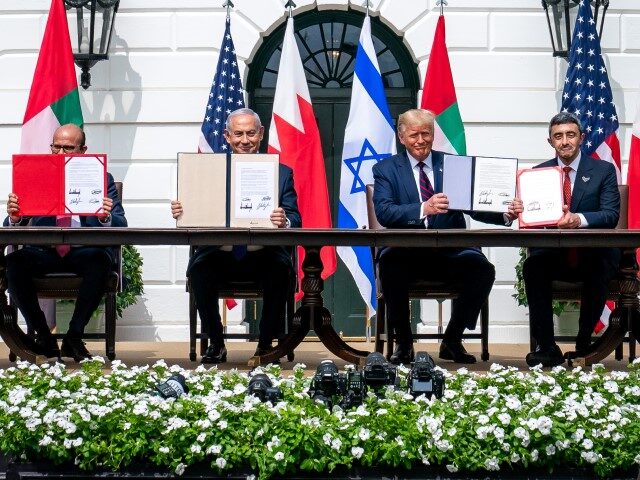Blue State Blues: After Iran, the Next Challenge Is Peace

The threat of a nuclear Iran has been one of the most urgent problems in national security for the past 20 years.
The Israeli government was raising alarms about Iran’s nuclear intentions 30 years ago, but it took several more years for the U.S. government to agree — ironically, after Americans were already weary of foreign interventions like the Iraq war, even — and especially — to stop “weapons of mass destruction.”
The easiest way to solve the problem, I thought at first, would be for Iran to change governments — not through a “regime change” war, but through the efforts of the Iranian people themselves. That is why it was so tragic that the newly-inaugurated Obama administration, with all its political capital, sat out the “Green Revolution,” preferring to preserve the possibility of a “grand bargain” with the regime on nuclear issues.
Obama’s Iran deal ultimately emerged in 2015 — after the U.S. had already given away the sanctions relief that the Iranian regime desperately needed. With that concession, Obama lost most of his leverage, and agreed, effectively, to allow Iran emerge as a nuclear power — just after a decade or so of delay. The Iran deal also allowed the regime to keep funding terror and developing ballistic missiles to carry nuclear weapons.
President Donald Trump wisely left the deal in 2018, and applied “maximum pressure” to the regime. That might have worked, had President Joe Biden not reversed course and spent four fruitless years looking for someone to talk to while the regime backed terrorist proxies that later attacked Israel, the U.S. military, and global shipping. Trump returned to office and restored “maximum pressure” to bring Iran back to the table.
When Iran refused to negotiate, even on the generous terms Trump was offering — terms so good that Israelis wondered if their good friend in the White House was preparing to sell them out — there was no other option but war. This irked those who worried — needlessly — about “forever wars,” but there was really no option. As I warned you here in this very column, just last month: “Don’t Be Surprised when Netanyahu Bombs Iran.”
That is what Netanyahu did, five weeks later. There were conservatives who feared that Israel simply could not win a war with Iran, but just like the stunning Israeli victory against hostile neighbors in the Six Day War of 1967, this war was effectively over in its first few hours. When I told a skeptical conservative friend that Israel was likely to finish the war within two weeks, he was skeptical. They beat the deadline by three days.
Yes, American firepower was necessary to finish the job of destroying Iran’s nuclear facilities. But if the U.S. had not acted, Israel would have found a way. After the war, the Israeli military revealed that it had ground forces — special operations troops — in Iran during the fighting, over 1,000 miles away from the homeland. Israel’s historic success on the battlefield gave Trump the confidence that the U.S. would meet no resistance.
I said Iran was a threat; I said that Obama’s deal would not work; I said that barring the overthrow of the fanatical Ayatollahs, a war would be necessary; and I said I believed that Israel and the U.S. could win it.
I was right, and I am happy I was right, and I feel blessed to have witnessed this moment in history (under Iranian fire, last April, no less).
Now, the next challenge is peace — and believe me when I tell you: it’s coming.
Joel B. Pollak is Senior Editor-at-Large at Breitbart News and the host of Breitbart News Sunday on Sirius XM Patriot on Sunday evenings from 7 p.m. to 10 p.m. ET (4 p.m. to 7 p.m. PT). He is the author of Trump 2.0: The Most Dramatic ‘First 100 Days’ in Presidential History, available for Amazon Kindle. He is also the author of The Trumpian Virtues: The Lessons and Legacy of Donald Trump’s Presidency, now available on Audible. He is a winner of the 2018 Robert Novak Journalism Alumni Fellowship. Follow him on Twitter at @joelpollak.